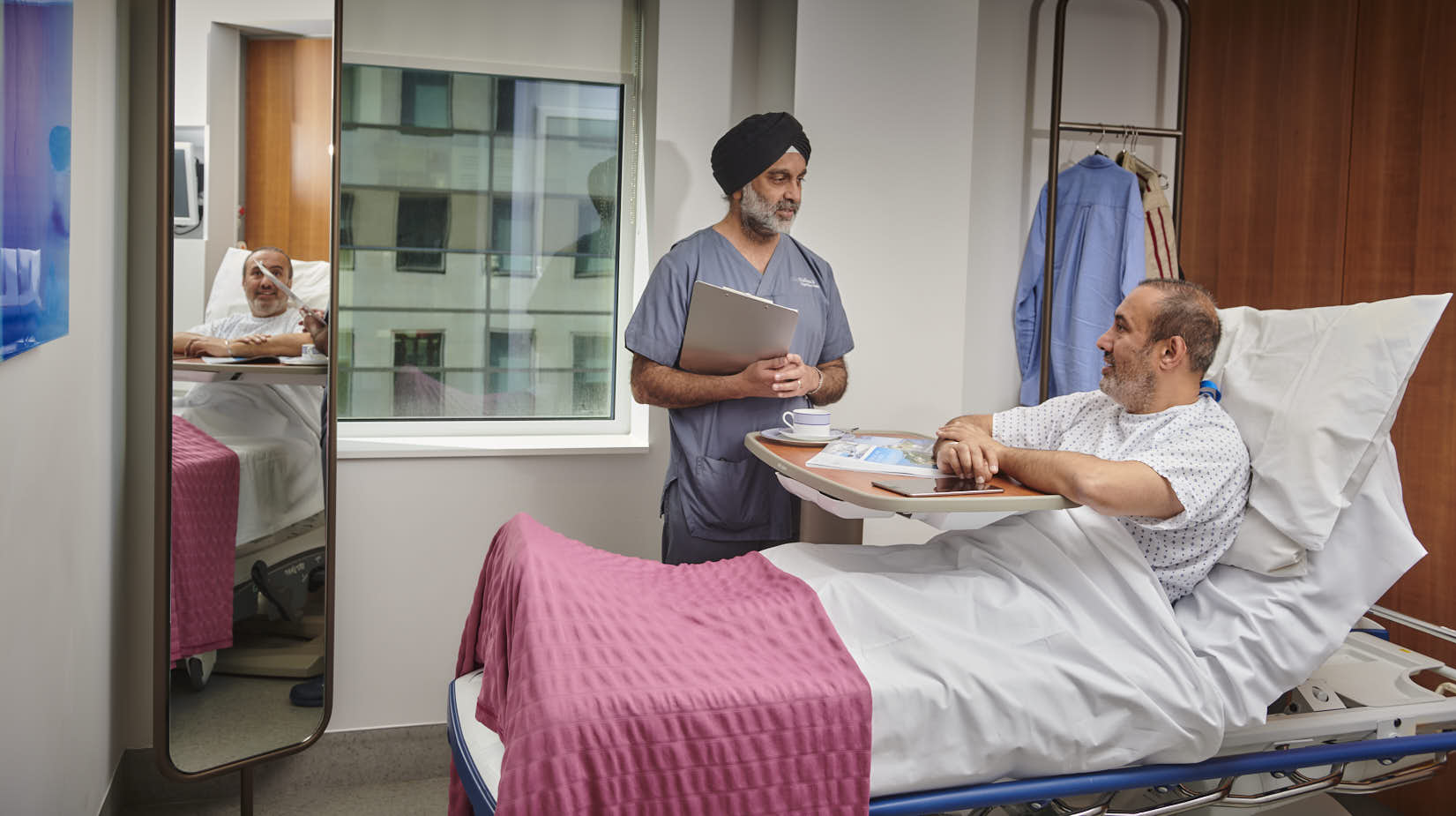This service or treatment is generally covered by most health insurance policies. You are responsible for checking your insurance policy cover, and you may need a referral letter. Check which insurance companies are covered.
Endoscopic Ultrasound Scan
Endoscopic ultrasound (EUS) is a minimally invasive procedure to assess diseases of the digestive (gastrointestinal) tract and other nearby organs and tissues.

What is an endoscopic ultrasound scan?
An endoscopic ultrasound scan (EUS) combines two types of test – endoscopy and ultrasound. The echo-endoscope is a thin flexible tube (about as wide as a finger), on the end of which is a bright light and a tiny digital camera, and a small ultrasound probe. The endoscope is passed by your doctor through your mouth and down the oesophagus, through your stomach and into the duodenum. EUS allows detailed images to be obtained not only of the lining of the upper gut (as with standard endoscopy), but also of areas beyond the gut lining, including the lungs, pancreas, liver, gallbladder and stomach.
Your consultant will have recommended that you have an endoscopic ultrasound to detect and assess diseases of the gastrointestinal tract, such as IBD, colon cancer, and pancreatitis.
The echo-endoscope can also be inserted into the back passage and through the colon, to analyse structures in the wall of the lower gut and beyond. The endoscope also has a 'side channel' down which instruments can pass.
Additional procedures that may be required include:
- EUS and biopsy/ Fine needle aspiration (FNA)
- EUS-guided stent placement
- EUS and Coeliac Plexus Block
The need for specific procedures during EUS will be specifically discussed prior to the EUS procedure being performed.
Preparing for an endoscopic ultrasound
Seven days before the examination
- Your endoscopist will need to know about all medications that you take, in particular blood thinners, which may need to be stopped or adjusted up to 1 week before the procedure (in particular if there is a need to take samples at the time of EUS).
- If you take Clopidogrel or other blood thinners it may be necessary to check with your cardiologist (or other specialist) to be sure that these can be discontinued prior to your EUS.
- There is usually no necessity to stop aspirin prior to EUS.
- Please continue to take any other medication (including laxatives)
- If you are a diabetic and take insulin, it is important that you continue taking your insulin but it is suggested that you reduce your dose on the day and night before the procedure. If you are concerned then contact your local diabetes nurse for advice. Remember to check your blood sugar every 3-4 hours.
- If you are taking tablets for your diabetes, please do not take them on the day of the procedure until after the procedure has been done.
- Please bring your diabetic tablets or insulin to the hospital with you
On the day of the procedure
- To allow a clear view, you should not eat anything, or drink any milk, for 6 hours before the appointment.
- You may drink clear fluids for up to (2 hours prior to the procedure (your usual prescription medicines can be taken with a sip of water).
Having an endoscopic ultrasound
Local anaesthetic may be sprayed to numb your throat and you will be given medications by injection through a vein to make you sleepy and relaxed. You will be asked to lie on your left side. A guard will be placed to protect your teeth. While in this position, the doctor will pass the endoscope through your mouth and down your throat. The endoscope will not interfere with your breathing and will not cause any pain. The examination usually takes about half an hour, but complicated therapeutic procedures may take longer. You will feel sleepy during the procedure but you will not be unconscious and you are usually aware of what is going on around you, unless you are having a general anaesthetic.
Risks of endoscopic ultrasound
Endoscopy can result in complications, such as reactions to medications or slight abdominal discomfort afterwards. A diagnostic EUS will not carry any more risks than an ordinary endoscopy. If biopsies are done, there may be a possibility of experiencing some pain after the procedure, but it is rarely severe. If biopsies are taken from the pancreas, there is a small risk of acute pancreatitis (less than 2%), and of bleeding (less than 2%). Specific types of EUS (e.g. involving the insertion of stents or drains) may carry higher risks, and this will be discussed in the consent process.
After the procedure
Some abdominal discomfort and bloating is common, which usually settles down after a few hours. Your throat may feel numb and slightly sore, and because of the local anaesthetic and sedation you should not attempt to take anything by mouth for at least one hour.
One of the medical team will review you if you are due to go home after the procedure.
Book a consultation
Jul 2025
Currently selected day
Available consultations






